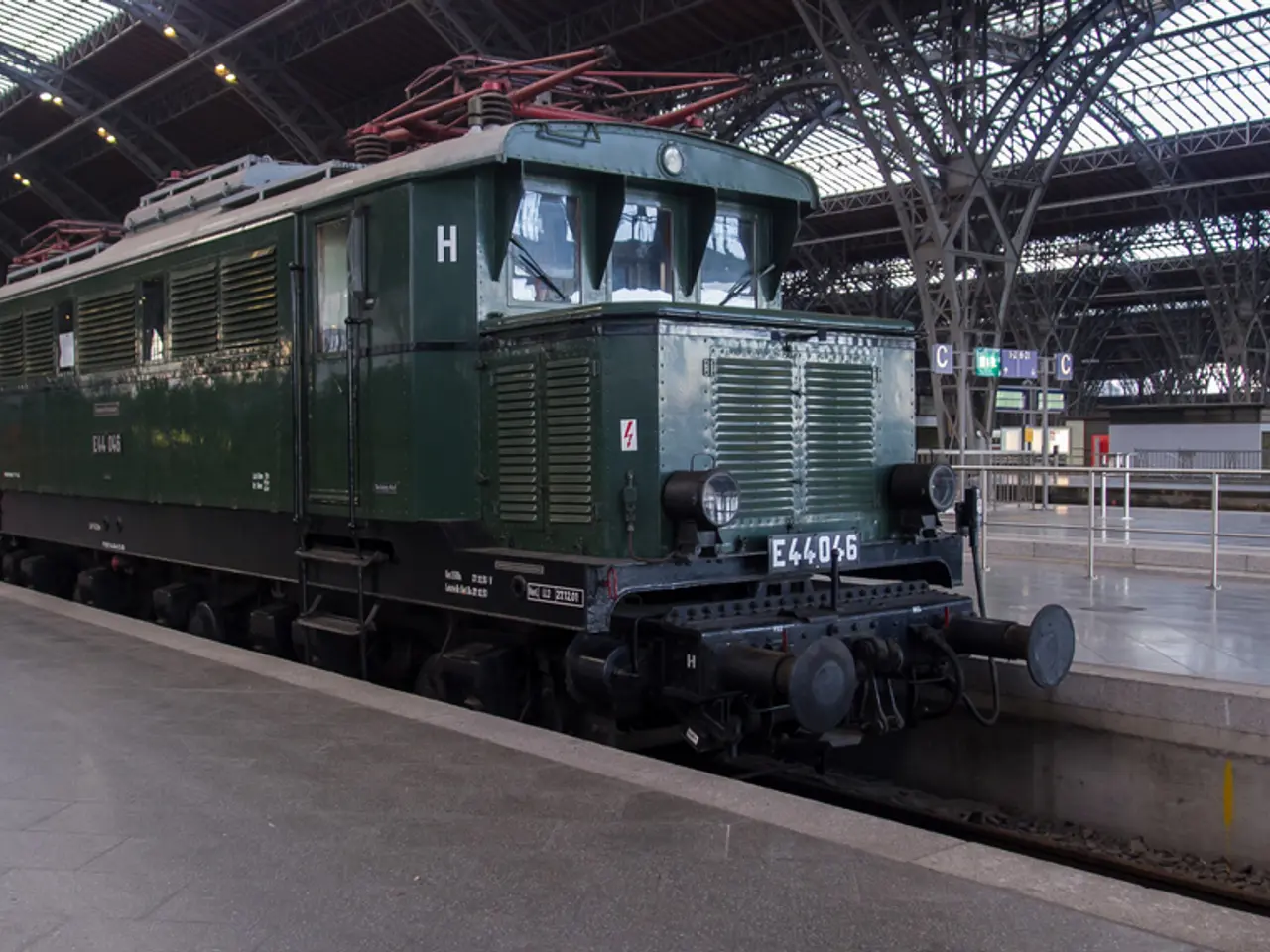Facing Delays: German Rail's Infrastructure Upgrade Expected to Last Four More Years
Extension of German Railway Rehabilitation Project by Four Additional Years - Prolonged Restructuring of German Railways Expands Over Four Additional Years
Want a smoother ride from Frankfurt to Hamburg? You might have to wait until 2035 for that, according to German Rail's latest proposal. The company announced an extension to their renovation plans at a recent industry event, pushing back the completion date by four years.
The main goal of this industry gathering is to draft a revised proposal to extend corridor renovations until 2035. A follow-up meeting is scheduled for July, where feedback from other transportation companies and associations will be incorporated. DB InfraGo, a subsidiary responsible for the project, hopes to finalize a concept with the federal government and implement it afterward.
Critics, such as freight transport competitors, accused the initial timeline of being too ambitious. They argued that detour routes were not adequately prepared and planned, and the Union had reservations due to promises made in the coalition agreement of the new federal government.
Modernizing the Railways for Better Service
With the comprehensive renovation plan, German Rail aims to revamp and digitalize more than 40 heavily traveled and outdated corridor sections starting in 2024. This ambitious project should improve punctuality in long-distance travel, which hit a 28-year low in 2023, plagued by the dilapidated and overloaded network.
Construction sites that disrupt rail traffic daily are one of the main culprits of poor reliability. Completing the renovation of these tracks could ensure at least five years of construction-free travel.
The first phase of this endeavor already started on the Riedbahn (Frankfurt-Mannheim) last year, with the Hamburg-Berlin route on the docket for 2025. Individual corridors will be fully closed during the renovation to maximize efficiency and finish as many works as possible within the allocated time frame.
alterations in the renovation schedule
The proposed renovation plan remains consistent with the initial schedule up to 2026. However, delays will start to occur from 2027 onwards. For instance, the Frankfurt-Heidelberg renovation is now planned for 2030, while the Lübeck-Hamburg route will see its renovation pushed back to 2028. In 2028, only four corridors will be renovated instead of the initial nine.
The renovations scheduled for postponement, according to German Rail's plans, include:
- Würzburg-Ansbach-Treuchtlingen (now: 2029)
- Aachen-Köln (2029)
- Forbach-Ludwigshafen (2029)
- Minden-Wunstorf (2034)
- Weddel-Magdeburg (2032)
The final renovation in 2035 will be the Flensburg-Hamburg route.
Challenges and Adaptations
The updated renovation plan enables German Rail to carry out renovations more efficiently by selectingively postponing corridor projects beyond 2026. The approach ensures improved management of traffic disruptions and optimized workflows to create a reliable and modern rail infrastructure.
This strategy involves completely shutting down individual corridors during their renovation phases for comprehensive upgrades to tracks, points, overhead lines, signaling, bridges, and stations, with the goal of ensuring five years of construction-free travel once renovations are complete.
Community aid could be crucial in funding the extensive renovation project, providing necessary financial support for the construction of new buildings like temporary stations or worker accommodations during the renovation process.
Industry association members and transportation experts might advocate for synergies between the industry and finance sectors, seeking investment opportunities to expedite the construction of new buildings required for the renovation, thereby reducing delays and ensuring smoother transportation for passengers during the upgrade period.




